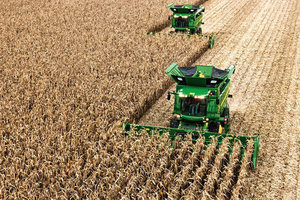According to a recent Purdue University news release, a series of crop management workshop dates extending throughout the summer at Purdue’s Crop Diagnostic Training and Research Center have been finalized. The workshops are designed to provide agribusiness professionals, consultants and educators with new strategies for identifying and responding to a variety of potential crop issues they could be up against this crop season.
Experts from Purdue and the Natural Resources Conservation Service will attempt to provide workshop participants with practical knowledge that could assist farmers in managing the nutrient, pest and environmental factors that impact plant growth. The workshops will extend from May through August.
May Workshops
The “No-Till Diagnostic Workshop” will be held on May 19, with topics including weed identification and management, maximizing weed control while minimizing herbicide drift, insect identification and management in no-till systems, planting equipment and systems and goof plots.
On May 21, the “Field Scout Intern Training Workshop” will cover insect identification and management, fundamentals of soybean and corn growth and development, weed identification and management, crop diagnostics 101 and plant disease identification management.
June Workshops
The “Early Season Diagnostic Workshop” will be held on June 18, covering insect identification and management for early season pests, weed management issues for 2015, early season corn growth and development, and soil and tissue sampling.
On June 30, the “Palmer Amaranth Field Day” will help agribusiness professionals with Palmer amaranth identification and biology, herbicide mode of action families and spray nozzle technology.
July and August Workshops
Insect identification and management for mid-season pests, mid-season plant disease identification and management, mid-season corn growth and development, and effective nutrient placement will be covered at the July 16 “Mid-Season Diagnostic Workshop.”
Closing out the series on August 27 will be the “Pre/Post-Harvest Workshop,” providing attendees with techniques to manage molds and mycotoxins in grain, pre-harvest preparation and stored grain management, storage economics, optimizing grain drying operations and personnel safety in grain handling.
For pricing and registration information, visit the Crop Diagnostic Training and Research Center’s homepage.
